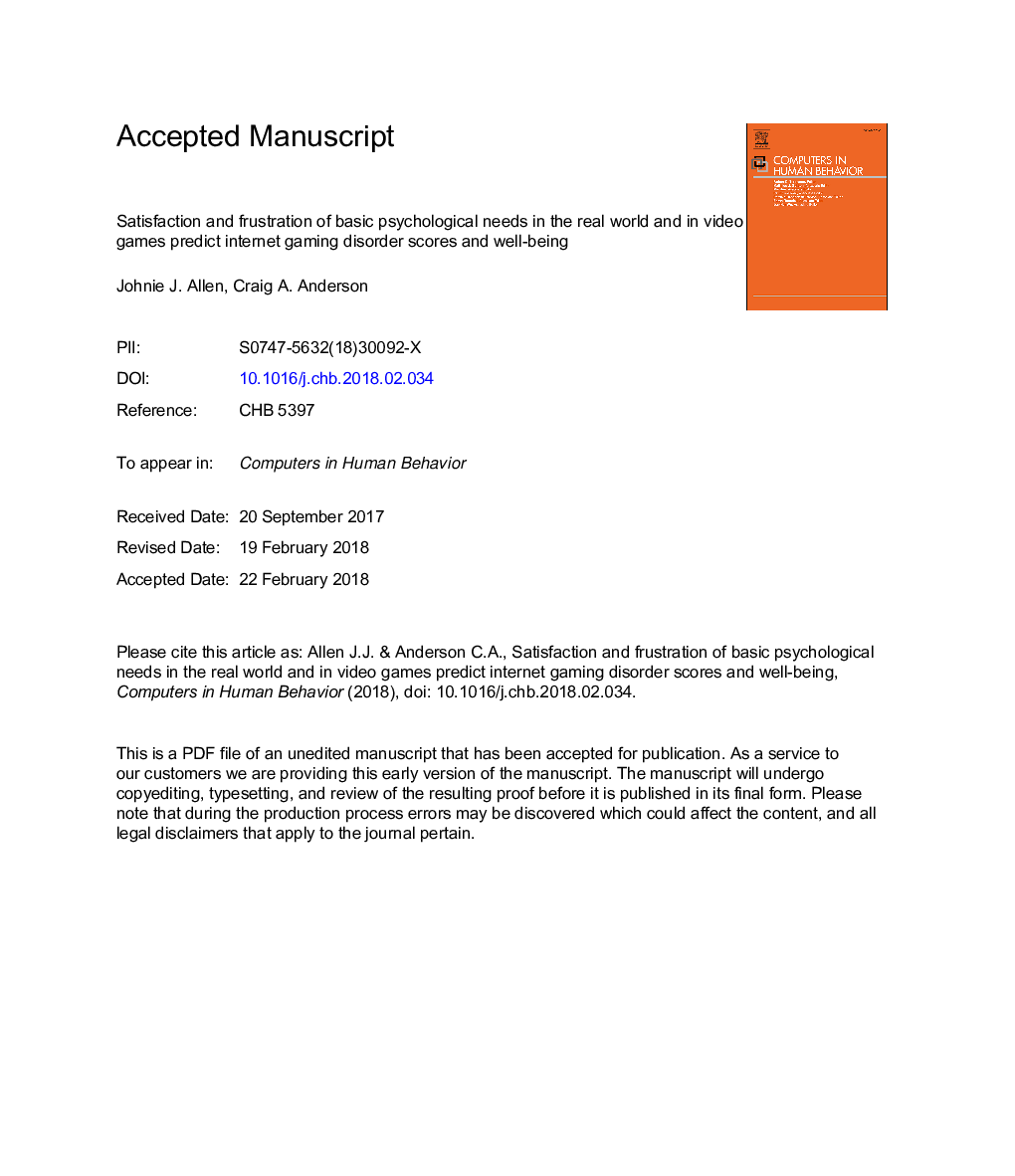| Article ID | Journal | Published Year | Pages | File Type |
|---|---|---|---|---|
| 6836017 | Computers in Human Behavior | 2018 | 42 Pages |
Abstract
The need-density hypothesis proposes that pathological gaming is most likely to occur when satisfaction of three basic human needs (competence, autonomy, relatedness) is low in the real world but high in video games. Our study tested this hypothesis to determine whether real-world need satisfaction and video game need satisfaction independently predict internet gaming disorder scores (IGD). We also assessed the effects of need frustration in both domains. As expected, we found strong support for the need-density hypothesis in terms of need satisfaction. Unexpectedly, need frustration in both domains was positively associated with IGD scores. A second goal of our study was to determine how the satisfaction and frustration of needs in both domains relate to well-being. We found consistent associations between well-being and real-world need satisfaction and frustration. Associations between well-being and video game need satisfaction and frustration were inconsistent, however. This pattern suggests that the satisfaction and frustration of needs in the real world is more important for well-being than the satisfaction and frustration of needs in video games. Thus, the real-world superiority hypothesis was supported over the video game superiority and equivalence hypotheses.
Keywords
Related Topics
Physical Sciences and Engineering
Computer Science
Computer Science Applications
Authors
Johnie J. Allen, Craig A. Anderson,
